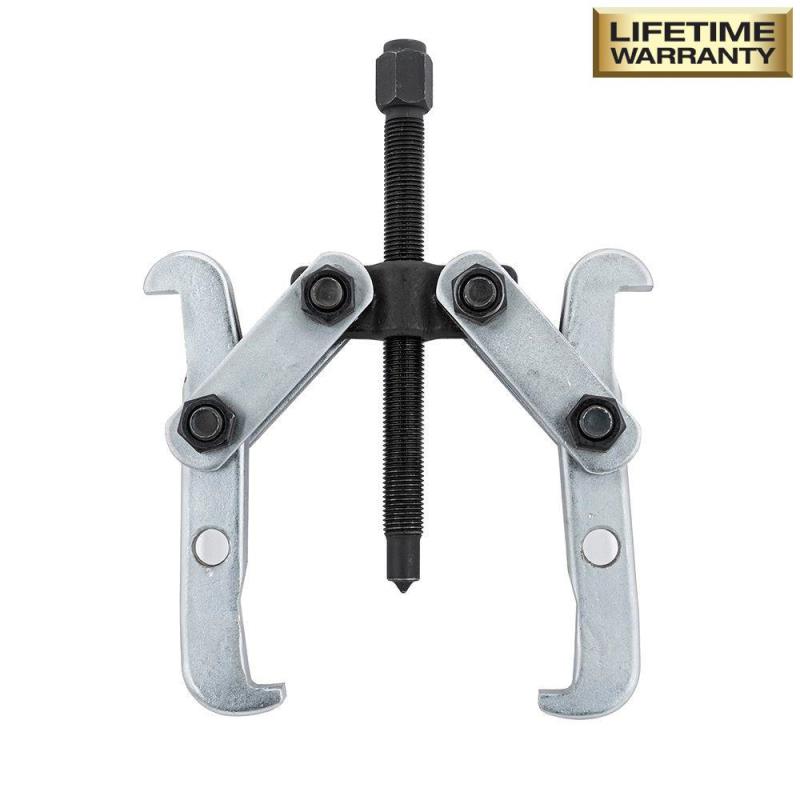|
By 56edson - 7 Years Ago
|
|
I have been trying to get the timing gear off the end of the cam for too long now. According to the shop manual it should slide off and is keyed, not pressed on. It shows using a pry bar, which I have done and really pulled hard. I have used all the lubes and it won't budge. The gear is tight to the cam retainer so I can't get a puller in there. Anybody have this happen to them or have any ideas? The engine is a 1957 292 ford. Any help would be really appreciated! Ed
|
|
By oldcarmark - 7 Years Ago
|
|
Have You tried heating it up with a Propane Torch? A generous application of Heat will usually free up most stuck Parts. Are U planning to reuse Cam or Gear?
|
|
By Ted - 7 Years Ago
|
|
In the car or out of the car? If out of the car, you can take a brass hammer or brass drift and drive the snout backwards thus pushing out the rear cam plug to get the gear loose from the snout. The engine does need to be upside down to insure the lifters are out of the way of the lobes when the camshaft goes rearward. To date I haven’t had to do one like that as I’ve been able to pry the upper gear off using two long pry bars on each side of the gear to work it off. It’s necessary to also work the lower gear forward at the same time.
|
|
By Larry Short - 7 Years Ago
|
|
I just had the same problem putting the cam back in my dragster. I don't like beating anything on. What I did was polished the inside of the gear with fine crocus paper until it would slide on. I put the crocus around a old pushrod, taped it on and used a drill to spin it (old school I guess) Also polished the end of the cam a little. It took some time of trial and error but gear slid right no. This probably isn't the correct way to do it but it worked for me. Larry Short
|
|
By 56edson - 7 Years Ago
|
|
Thanks Oldcarmark,Ted and Larry Short for all your advice! I think I will start with the heat and use two pry bars. If that doesn't work, i'll do Ted's method. I don't know about the cam until I get it out and measure it.
|
|
By KULTULZ - 7 Years Ago
|

|
|
By Daniel Jessup - 7 Years Ago
|
|
I ditto Kultulz. In 100% of the Y blocks I have disassembled I had to use the exact same puller for the cam timing gear. The crank gear was always more loose and slid on its snout.
|
|
By 56edson - 7 Years Ago
|
|
My thanks to everyone who responded, today I used lots of heat and two pry bars and it came right off. Now I can get busy with the digital caliper. thanks again to all! Ed
|
|
By Tedster - 7 Years Ago
|
|
Hope this isn't considered a "hijack" of the thread, what do you guys consider excessive wear or play in the timing chain itself? Have checked for excessive backlash by moving crankshaft clockwise and back and distributor rotor moves immediately. But I changed out a fuel pump the other day, and noticed the slack side of the chain is loosey goosey. What's the deal on that?
|
|
By KULTULZ - 7 Years Ago
|
"...noticed the slack side of the chain is loosey goosey. What's the deal on that?"
Stretched timing chain.
If you turn the balancer one way to take up it's slack and then reverse rotation while watching the dist rotor to where it begins to move, you can gauge about how far it is stretched in degrees.
|
|
By Tedster - 7 Years Ago
|
|
Well that's just it there's no slop in the rotor movement. I've read conflicting info on how to measure chain deflection, whether under tension or on the slack side.
|
|
By Ted - 7 Years Ago
|
Tedster (9/14/2018)
Hope this isn't considered a "hijack" of the thread, what do you guys consider excessive wear or play in the timing chain itself? Have checked for excessive backlash by moving crankshaft clockwise and back and distributor rotor moves immediately. But I changed out a fuel pump the other day, and noticed the slack side of the chain is loosey goosey. What's the deal on that?
This question could have had its own post rather than be buried in another thread. Per the 1957 service manual, if the total chain deflection exceeds ½”, then replace the timing set. The service manual goes into detail on how to insure that the chain is tight on one side or fully loaded so that the ‘loose’ side can be measured for deflection.
|